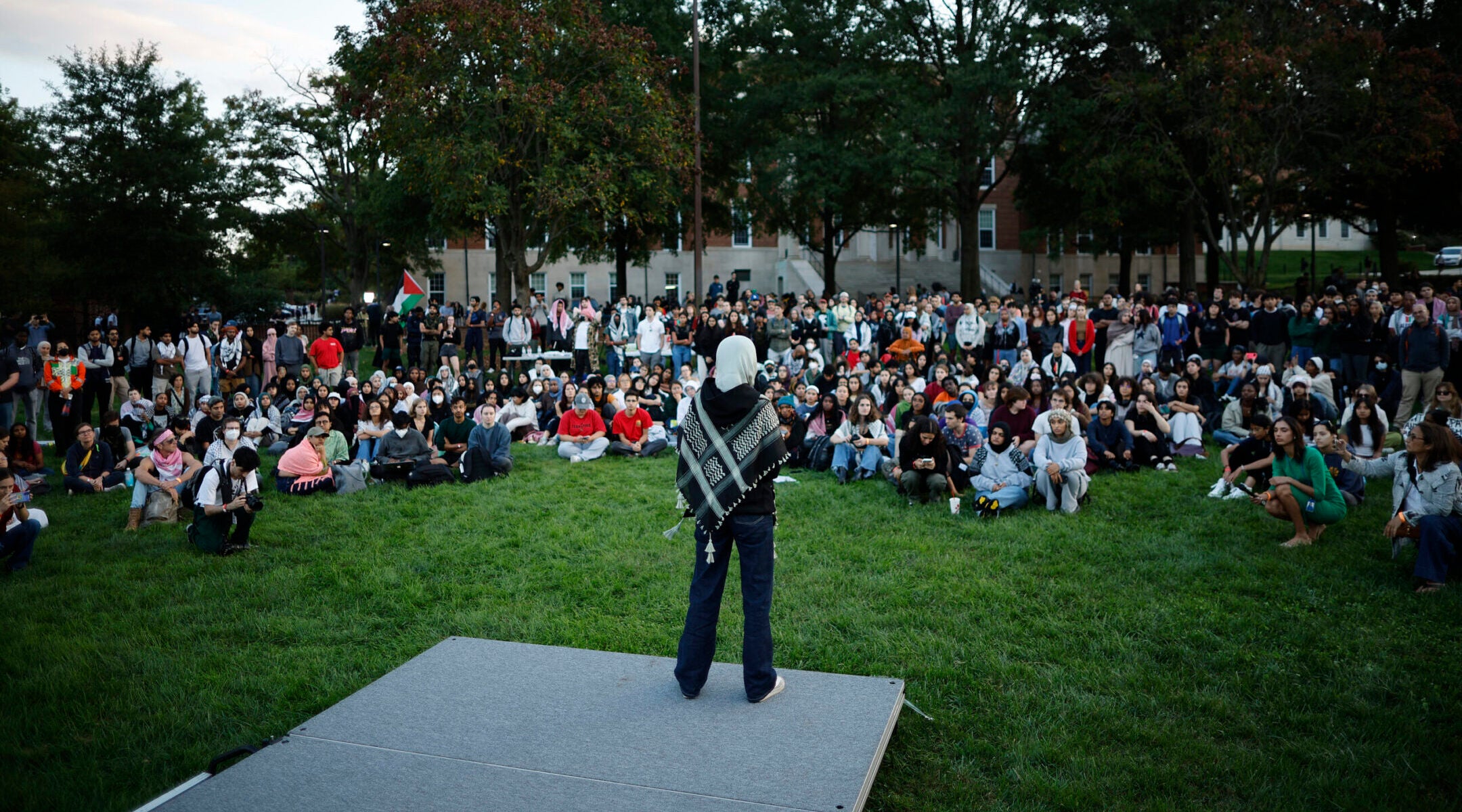A federal judge ordered the University of Pittsburgh to reinstate Students for Justice in Palestine after suspending its chapter earlier this year, saying that the school was unfairly restricting the group’s right to recruit students at the start of a new school year.
The decision comes as the school year kicks off with multiple battles over the pro-Palestinian group’s presence on college campuses, as the fallout continues from a crackdown on protest activity that drew allegations of antisemitism.
It also follows what advocates say was likely the largest financial penalty for suppressing pro-Palestinian student speech, against the University of Maryland over the summer.
SJP, one of the most prominent pro-Palestinian groups on college campuses, has frequently faced suspensions from universities amid the wave of campus protests during the Israel-Hamas war in Gaza. Many chapters played leading roles in organizing pro-Palestinian encampments during the spring of 2024 that drew allegations of antisemitism.
Early on into Israel’s war in Gaza in November 2023, the SJP chapters at Columbia University, George Washington University and Brandeis University faced bans and suspensions over their anti-Israel rhetoric and activity.
Pitt suspended its SJP chapter in March for six months, alleging the group had disrupted its disciplinary process after publishing an open letter condemning its prosecution of a December 2024 overnight “study-in” at the campus library.
During the December 2024 protest, students gathered in the library and wrote “Pitt tuition $$$ funds occupation” and “Lift the siege on Gaza now” on whiteboards before being dispersed by university police.
The American Civil Liberties Union filed a federal free speech lawsuit against the school on behalf of the student group on April 15, claiming the suspension was an “apparent retaliation for the club’s political speech.”
On Thursday, U.S. District Court Judge J. Nicholas Ranjan responded by lifting the Pitt SJP chapter’s suspension three weeks ahead of schedule. He wrote in his decision that the rules of the school’s code of conduct “sweep too broadly” and that its conduct hearing should be “furthered by a more refined and tailored rule.”
“Pitt has informed SJP that, during the suspension, it cannot gather as an organization or recruit other members. That seriously and presently infringes SJP’s rights of association and speech, particularly at this time of year, as the academic year begins,” Ranjan wrote in his three-page decision.
Although the suspension has been lifted, the ACLU’s lawsuit will continue.
“The end goal is to vindicate the rights of SJP Pitt, and it’s also to protect the free speech rights of students at all universities in Pennsylvania,” ACLU lawyer Solomon Furious Worlds told Pittsburgh’s Public Source.
The legal win for the Pitt SJP chapter is one of several recent developments at chapters across the country.
George Mason University’s SJP chapter was suspended last year after police raided the homes of two of its leaders and found guns, ammunition, signs that read “death to Jews,” and Hamas and Hezbollah flags. This semester, it was reinstated — and immediately ignited controversy when it posted a terrorist-style recruitment video last month. The school is defending the reinstatement but says it has referred the video to federal law enforcement authorities.
Meanwhile, at George Washington University, the SJP chapter announced it was disaffiliating from the school after it was suspended through spring 2027 for campaigning for the firing of a professor who called on President Donald Trump to redevelop the Gaza Strip.
“Because SJP has never consistently received the privileges extended to other student organizations – including funding and the ability to book space on campus – we are choosing to disaffiliate from GW, and we’re doing so because it will allow us to be more active in combating Zionism on campus,” a member told the school’s student newspaper, The GW Hatchet.
And the SJP chapter at the University of Wisconsin was suspended in July through January 2026 after the school said it violated multiple rules by disrupting an event with Linda Thomas-Greenfield, the former U.S. ambassador to the United Nations, last spring.
Over the summer, the University of Maryland agreed to pay $100,000 to settle a lawsuit brought by leading pro-Palestinian advocacy groups on behalf of the school’s SJP chapter. The lawsuit charged that the university unfairly infringed upon students’ speech rights when it barred a vigil on the one-year anniversary of Hamas’ Oct. 7, 2023, attack on Israel. The vigil took place under court order, and the settlement agreement requires Maryland to acknowledge SJP as a student group in good standing.
JTA has documented Jewish history in real-time for over a century. Keep our journalism strong by joining us in supporting independent, award-winning reporting.






